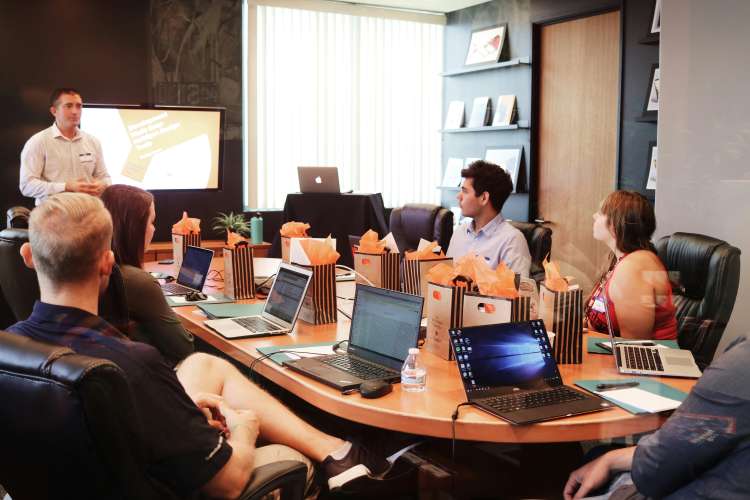
Big Tech: The technology industry is at a crossroads at the beginning of 2024. The outlook is not bright and promise-filled as many had hoped for. The future of the industry is shadowed by a trend that is all too familiar now—thousands of layoffs, shaking the very foundation of what many believed the tech industry stood for: stability, growth, and opportunity.
As these layoffs unfold, with over 7,500 jobs already cut this year, there is a stark contrast emerging. On one hand, financial analysts are buzzing with optimism, predicting strong earnings and suggesting that the industry might finally be moving past the turbulence of pandemic-induced over hiring. Yet, on the other hand, the stories of those losing their jobs tell a different, more personal tale of uncertainty and upheaval.
READ | Protest to mutual gain: Reforms must factor in hidden costs of contract farming
The big tech firms—Google, Amazon, Meta, and others—have been tightening their belts, making deep cuts across various departments. Google, for example, did not spare roles from hardware to YouTube, signalling a significant shift in priorities towards AI and cloud computing. This strategic pivot, while seemingly necessary for future-proofing these behemoths, begs a crucial question: At what cost does this future come, especially when these companies report massive profits and sit on hefty cash reserves.
Beyond financial considerations, these choices raise vital ethical questions. The tech industry has long been associated with progress and positive societal impact. But with a focus on short-term gains and shareholder value, is it sacrificing its original ideals? Is efficiency and automation becoming the sole metric of success, even if it comes at the cost of human displacement and economic anxieties? These are conversations the industry, and society as a whole, cannot afford to avoid.
This contradiction is hard to ignore. The industry that once prided itself on innovation and a forward-thinking ethos now appears to be prioritising stock prices and investor satisfaction over the welfare of its workforce. This shift is especially jarring when considering reports like Meta’s, whose net income soared by 201% in the last quarter of 2023, after substantial job cuts. It paints a picture of a sector were efficiency and profitability trump employee security and well-being.
At the heart of this transformation is the industry’s aggressive push into artificial intelligence (AI) and cloud computing. Sundar Pichai’s memo to Alphabet employees about making ‘tough choices’ underscores a wider industry trend. Yet, it is crucial to question the narrative that positions these layoffs as merely strategic adjustments. The reality for many of those affected is far from strategic; it is life-changing, and not in the way they had hoped when they joined these once-dream companies.
The stories of individuals who faced the brunt of this industry shift multiple times bring a human angle to the corporate decisions and strategies often discussed in abstract terms. It is a harsh reminder of the volatility and unpredictability that now characterises an industry once celebrated for its dynamism and promise of progress.
Beyond statistics and corporate justifications lie the human stories. It is crucial to amplify the voices of those whose lives have been upended by layoffs, especially in an industry that once promised stability and growth. Their experiences illuminate the human cost of strategic adjustments and remind us that technological progress cannot come at the expense of individual well-being. Highlighting these personal narratives can help bridge the gap between abstract corporate decisions and their tangible consequences.
As we look ahead, the tech industry stands at a pivotal moment. Will it continue down this path of prioritising short-term gains over long-term sustainability and human impact, or will it find a way to balance its ambitions with a renewed commitment to its people? The choice will not only shape the future of work within the sector but also define its legacy.
The tech industry’s choice will define not just its own future but also the future of work in a technology-driven world. Is there a path forward that balances innovation with social responsibility, prioritising both human capital and technological advancement? While the current landscape paints a concerning picture, there are glimmers of hope. Initiatives promoting reskilling, ethical AI development, and worker ownership offer alternative models. Ultimately, the tech industry’s legacy will be determined by its ability to navigate this crossroads with empathy, foresight, and a renewed commitment to its human workforce.
The ongoing layoffs and strategic pivots are more than tales of economic cycles or corporate restructuring. It is a reflection of deeper societal and ethical questions facing not just the tech industry but all of us. How we answer these questions will shape not only the future of technology but also the kind of world we want to live in.
Anil Nair is Founder and Editor, Policy Circle.


